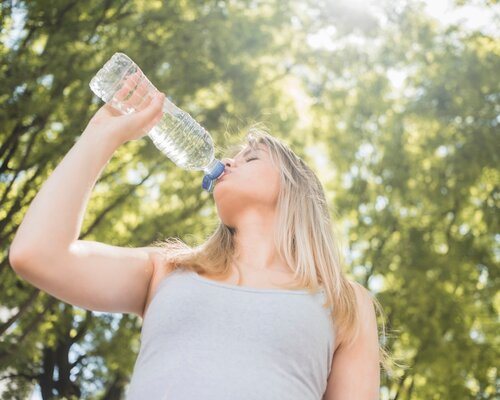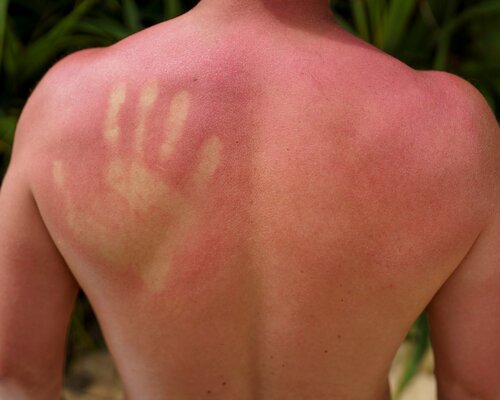Risks of Dehydration in the Elderly
The elderly have an increased risk of dehydration for several reasons. The sense of thirst often decreases as people age, making them less likely to notice that they need fluids. In addition, common medications such as urinary pills (diuretics) can interfere with hydration and contribute to dehydration, especially during hot weather. Therefore, it is crucial for seniors to be extra vigilant about their hydration during the summer months.
How Dehydration Emerges and Its Symptoms
Dehydration occurs when the body loses more fluid than it takes in. This can occur through excessive sweating, which is a natural response to regulate body temperature in hot weather. However, if the fluid loss is not compensated for, it can lead to a fluid imbalance in the body.
Symptoms of Dehydration to watch out for include:
- Reduced urination: Reduced urine production may indicate dehydration.
- Dark urine: An indication that the body is too concentrated due to fluid deficiency.
- Dry skin and reduced elasticity: The skin becomes less resilient and stays upward for longer when grasped.
- Confusion: Dehydration can affect mental clarity, especially in the elderly.
- Low blood pressure and dizziness: Risk of fainting increases with a decrease in blood pressure due to dehydration.
Consequences of Dehydration
If dehydration is not treated promptly, the consequences can be severe. It can lead to confusion, lethargy, and in extreme cases, even unconsciousness or coma. Especially during a heat wave, these risks can increase as the body loses more fluids through sweating and the need for hydration increases.
Preventive Measures
To prevent dehydration, there are several preventive steps you can take:
- Drinking enough water: Aim for at least 2 liters of water per day, spread throughout the day.
- Hydration aids: In addition to water, water ices, juicy fruits such as watermelon, sports drinks and flavored lemonade are good options for replenishing fluids.
- Limit alcohol: Alcoholic beverages can promote dehydration, so drink in moderation, especially during hot days.
- Medication and health conditions: Discuss with a physician whether certain medications affect hydration and whether adjustments are needed during the summer.
- Special consideration for high-risk groups: People with diabetes, heart problems, kidney problems or other chronic conditions should take extra care and possibly adjust their fluid intake.
Conclusion
By being alert to the signs of dehydration, drinking water regularly and using appropriate hydration methods, you can protect yourself from the health risks of dehydration during the summer. Make sure you maintain a healthy balance between fun and safety during the warm months so you can enjoy summer full of energy and health.





